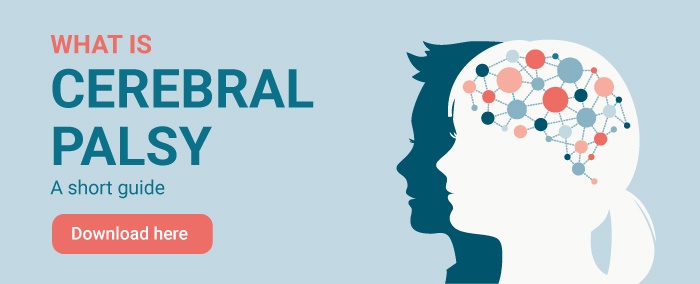
Oct 8, 2025Navigating the transition to adulthood for your child with CP

Back to Blog Overview
A child with cerebral palsy reaching adulthood marks a proud milestone of growth and change. For families, it’s a complex journey toward independence and advocacy. With early planning, preparation, and strong support, parents can empower their child to build confidence and thrive in adulthood.
In this article, you’ll read about:
- Start early – Plan ahead
- Healthcare transition: From paediatric to adult care
- Building life skills & independent living foundations
- Education, employment & vocational planning
- Addressing gaps & empowering your child
- Emotional transition: Letting go while staying involved
Start early – Plan ahead
Transitions do not happen all at once. They begin long before the eighteenth birthday. Many families find it helpful to start considering the future when their child is around fourteen. This early preparation allows time to address healthcare, education, social participation, and independence gradually. Schools, healthcare professionals, and local authority services can work with you, often through an Education, Health and Care Plan (EHCP), to map out long-term goals.
Healthcare transition: From paediatric to adult care
One of the most significant changes is the move from paediatric to adult healthcare. After years of building relationships with familiar doctors and therapists, many families find the adult NHS system less joined-up and sometimes more difficult to navigate.
- Creating a clear medical summary. Listing treatments, therapies, medications, and providers—can be invaluable.
- Encourage self-management. Encouraging your son or daughter to take on small responsibilities, such as preparing questions for appointments. This can also help them build confidence in managing their health.
- Build a new adult care team. This might include neurologists, orthopaedic specialists, rehabilitation therapists, mental health professionals, and GPs as the central coordinator.
- Annual multidisciplinary reviews. As recommended by NICE, help monitor progress and address any new concerns.
- Accessibility and advocacy. Work with NHS providers to ensure services are inclusive and adapt appointment structures when needed.
Building life skills & independent living foundations
Beyond health, developing everyday life skills is crucial. Not every young adult with CP will live independently, but all benefit from practising tasks that foster confidence and autonomy.
- Daily living skills: cooking, cleaning, laundry, or personal care (adapted as needed).
- Money management: opening a bank account, understanding budgeting, and using disability-related financial support such as Personal Independence Payment (PIP).
- Social skills: encourage friendships, hobbies, and joining community or peer networks to build confidence.
- Transport & mobility: explore adapted driving, motability schemes, or accessible public transport to foster independence.

Education, employment & vocational planning
Parents play a key role in exploring meaningful next steps:
- Transition planning through school. EHCPs should cover preparation for further education, training, or employment.
- Further education and training. Colleges and universities offer support through disability services and the Disabled Students’ Allowance (DSA).
- Employment pathways. Explore supported internships, apprenticeships, or workplace adjustments through the Equality Act 2010.
- Financial supports. Families can explore Carer’s Allowance, Universal Credit (if eligible), and long-term options like deputyship or lasting power of attorney if decision-making support is needed.
Addressing gaps & empowering your child
Young people with CP often face gaps in the system, such as limited adult specialists or lack of joined-up care. Families can help by:
- Starting transition planning early with paediatric teams and schools.
- Connecting with a transition coordinator, social worker, or case manager where available.
- Meeting adult teams before the official handover.
- Advocating for an individualised pathway based on your child’s strengths and goals.
Emotional transition: Letting go while staying involved
This stage is emotionally charged—for your child and for you.
- It’s natural to feel worried, sad, or even relieved as your role evolves from primary carer to coach.
- Every young person’s path is different—some thrive in independence; others need more ongoing support.
- Encourage open conversations about hopes, fears, and future goals.
- Stay connected: provide guidance with logistics and benefits but allow your child to develop their own voice and choices.
Ultimately, the transition to adulthood is not a single event but a gradual process—one that weaves together independence, support, and identity. With thoughtful preparation, starting in the teenage years, families can provide continuity of care, nurture essential life skills, and open up opportunities for education, employment, and meaningful participation in society.
Most importantly, it is about walking alongside your child as they step into adulthood—supporting them to build a life that reflects their strengths and aspirations; while knowing they are never alone on the journey.
Useful UK resources for families:
- NHS Moving from children's social care to adults' social care
- Scope – Support and advice for young people with a disability
- UP – The Adult Cerebral Palsy Movement - Transition
- GOV.UK – Personal Independence Payment (PIP)
- GOV.UK – Disabled Students’ Allowance (DSA)


Rikke Damkjær Moen brings many years of experience as clinical physiotherapist to the Made for Movement team. Her mission is to ensure that everybody, regardless of mobility problems, should be able to experience the joy and health benefits of physical activity. As our Medical Manager, Rikke is passionate about sharing knowledge so that individuals with special needs, families, and clinicians can discover the possibilities and solutions provided by Made for Movement.

